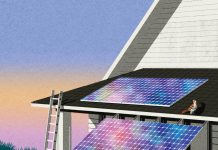I drive on Boulevard at least ten times a week. That comes out to something like 6,000 times in the thirteen years I’ve lived in Atlanta. In the early 2000s, when I worked at Creative Loafing, the paper’s headquarters were down a dead-end street just off Boulevard. One Monday we came to work to find a car parked right where the asphalt ended and the kudzu began. Inside the car was a body, shot to death sometime over the weekend. The police came, taped off the scene, took some pictures, and by lunch things were back to normal. If, as the journalism joke goes, news is what an editor sees on his way to work, then we probably could be writing about Boulevard in every issue.
Of course, driving down a street, even if it’s 6,000 times, hardly makes you know it. This point has been brought home to me many times over the past year with Rebecca Burns’s reporting on the Year of Boulevard, an effort spearheaded by Atlanta city council member Kwanza Hall to change not only the reality of Boulevard but the perception of it. Yes, Boulevard has long been an intractable pocket of poverty, neglect, and crime, with the largest concentration of Section 8 housing in the Southeast at its center. But Boulevard is families too. And neighborhood groups. And merchants. And history (Boulevard bisects the cradle of the civil rights movement). Hall’s initiative to rehab and revitalize and resurrect Boulevard takes all of this into account. The past year has seen real progress on Boulevard—crime is down 14 percent, for example—but the real measure of its success comes from people like M. Jamil Atkins, a twenty-six-year-old divorced mother of three. Atkins (pictured right) grew up in Bedford Pine, the vast housing complex that most of us associate with Boulevard. Four years ago, circumstances forced her to move back. If anyone has earned the right to be cynical, it’s her. But organizers reached out to her, and before long she had a part-time job—one she’s hoping will lead to something full-time. Those are the stories of Boulevard we need to hear more about.










![The North Carolina Museum of Natural Sciences’ newest exhibit is a [pre]historic first](https://cdn2.atlantamagazine.com/wp-content/uploads/sites/4/2024/04/DD-3-100x70.jpg)


